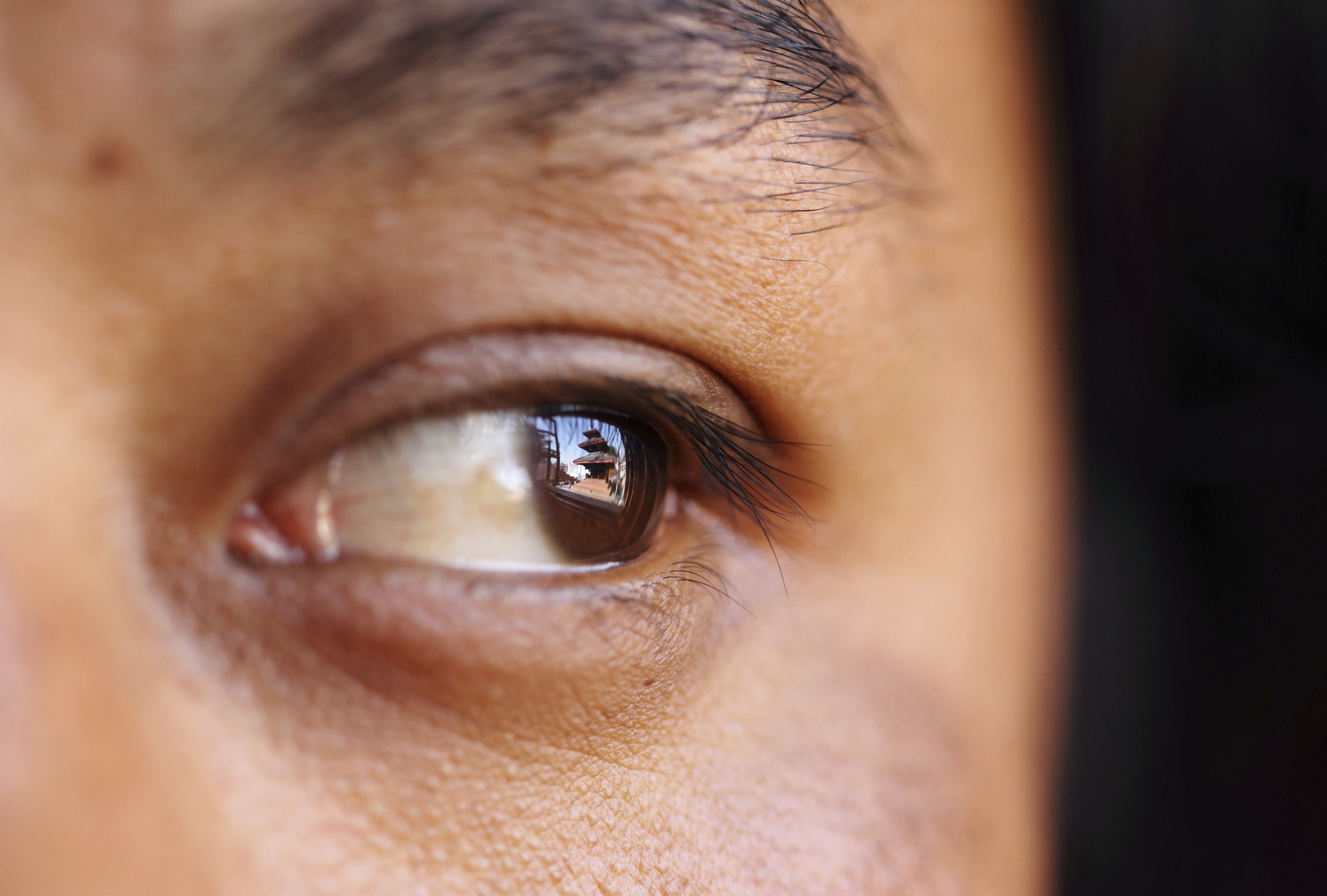
Ocular melanoma—an incredibly rare eye cancer that affects just six people in every million—has mystified doctors in Auburn, Alabama, and Huntersville, North Carolina, showing up in an unusually large number of people with connections to the towns.
Three friends that attended Auburn University have developed the cancer, CBS News reported. Tens more people have since contacted a Facebook page for former Auburn students to say whether they've been affected by the disease, the outlet said. Doctors have also diagnosed 18 people in Huntersville. Although unusual, doctors are still hesitant to call the groups of cases "clusters," CBS News reported.
Former Auburn University student Ashley McCrary was shocked when diagnosed with the rare disease after witnessing friends Juleigh Green and Allison Allred lose their eyes to the cancer. "What's crazy is literally standing there, I was like, 'Well, I know two people who've had this cancer," she told CBS News.
Related: Does coffee cause cancer? We asked scientists
So what is this rare and dangerous disease, and why has it sprung up in these local groups?
Pigment-producing cells tan your skin, tint your hair and even color your eyes. The vulnerability of these cells in the skin is well-known, and many of us are aware of the risks of skin melanoma. But melanoma can also affect the mouth, intestines and the eyes. Pigment-producing cells in the eyes can develop ocular melanoma.
Eyes are made up of three layers—the outer sclera, the inner retina and the uvea in between. According to the American Academy of Ophthalmology, cancerous cells usually clump together in the middle of these three layers, where they can be difficult to detect.
The Ocular Melanoma Foundation estimates that doctors diagnose between 2,000 and 2,500 cases per year in the U.S. Although the disease may cause no symptoms early on, it can lead to blurry vision, the sensation of flashing lights and a change in pupil shape. Eventually, it may require radiation therapy, chemotherapy and even the surgical removal of tumors. Some patients lose affected eyes to treatment. Like other cancers, it can spread throughout the body, impact other organs and eventually lead to death.
Related: New chemicals that could help prevent skin cancer are languishing in FDA purgatory
"Most people don't know anyone with this disease," Dr. Marlana Orloff, an oncologist from the Sidney Kimmel Cancer Center in Philadelphia treating McCrary, told CBS News. "We said, 'OK, these girls were in this location, they were all definitively diagnosed with this very rare cancer—what's going on?'"
Although the exact cause—or causes—of the Auburn and Huntersville groups of cases are unknown, things like sun exposure, light eye color, pale skin and older age are often linked to the disease.
Doctors think an environmental factor may have a role in these cases, but they are hesitant to pinpoint any individual target just yet, CBS News reported. Investigators are searching for links between the cases but, in Huntersville at least, they have failed to find any concrete explanation, WCNC reports.
Alabama legislatures and Auburn University have so far failed to fund an investigation into the Auburn cases, WLTZ reports. Researchers at the university are searching for answers, however. Dr. Frederick Kam, medical director at Auburn University's Medical Clinic, is planning to lead a committee that may shed light on the mysterious cases.
"This is not a good type of cancer for a person to have. There's no known cause, which makes it more challenging," he told WLTZ. "I strongly believe and Auburn University strongly believes we need to be involved and help with the process because it's the right thing to do, and we will continue to pursue those efforts."
McCrary, who will sit on the committee, added, "They are going to see when were these people here, what did they major in, where did they live, where did [they] work and then go forward from there."
Uncommon Knowledge
Newsweek is committed to challenging conventional wisdom and finding connections in the search for common ground.
Newsweek is committed to challenging conventional wisdom and finding connections in the search for common ground.
About the writer
Katherine Hignett is a reporter based in London. She currently covers current affairs, health and science. Prior to joining Newsweek ... Read more





